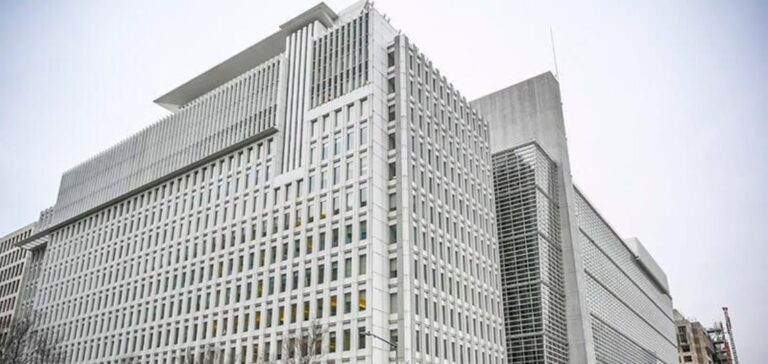The World Bank has pumped $14.8 billion into fossil fuel-related projects since the Paris climate agreement was adopted, according to a report by a coalition of environmental NGOs released Thursday.
The international financial institution pledged in 2018 to stop financing oil and gas extraction, notes this analysis compiled by The Big Shift Global coalition. But while such direct financing has declined, the measure did not include indirect financing through intermediaries, such as private banks, she notes.
The report comes amidst controversy over comments made by World Bank President David Malpass. Appointed by former President Donald Trump, Malpass is accused of dodging questions asking him to affirm the role of fossil fuels in global warming.
“Every time the World Bank invests in a new fossil fuel project, it contributes to climate catastrophe,” said Sophie Richmond of The Big Shift. “There is no justification for using taxpayer dollars to exacerbate the climate crisis.”
The 2015 Paris Agreement aims to limit global warming to less than +2°C compared to the pre-industrial era, if possible +1.5°C.
In a statement to AFP, the World Bank said it “disputes the conclusions of the report,” which makes “inaccurate assumptions about the lending” of the institution.
“In fiscal year 2022, the World Bank disbursed a record $31.7 billion for climate-related investments” and to “help communities around the world respond to the climate crisis,” she continued.
The largest project raised by the report is the Trans-Anatolian gas pipeline in Azerbaijan, assisted in 2018 with $1.1 billion. “It serves to perpetuate the use of gas in Europe,” the report notes.
The World Bank’s own assessment of the project pointed to “potential significant social and environmental impacts”, including on “air and water quality (…) biodiversity” and “human health”. A green light was given to the project anyway.
Another project highlighted is the construction of two coal-fired power plants in Indonesia, called Java 9 and 10, for which the World Bank has provided $65 million in indirect funds.
The report also criticizes the World Bank’s view that natural gas is a “bridge” between fossil fuels such as coal and renewable energy.





















